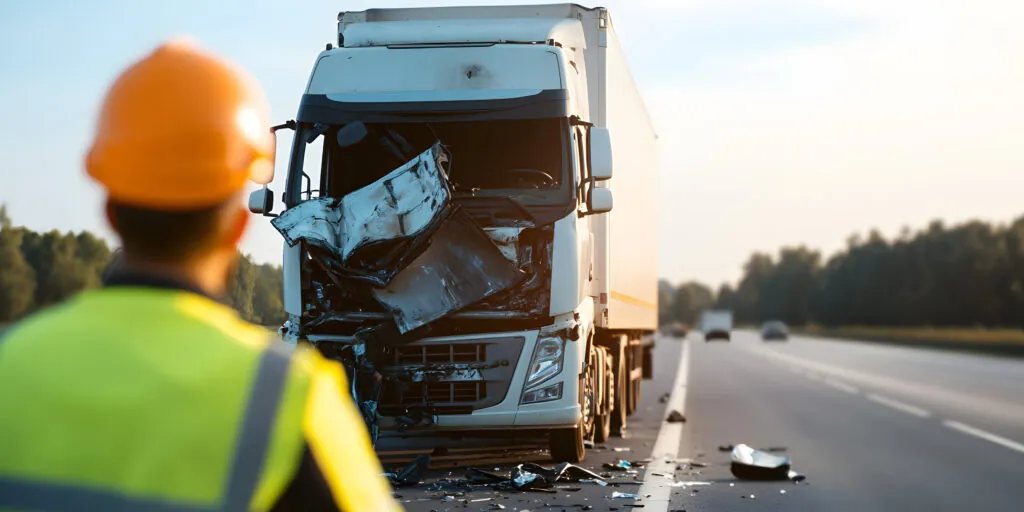Philadelphia Industrial Equipment and Tools Defects Lawyers
Industrial workplaces are often filled with heavy machinery, power tools, and complex equipment. When functioning correctly, these tools increase productivity and efficiency. However, when defective or malfunctioning, they can cause devastating injuries, long-term disabilities, or even fatalities. If you or a loved one has suffered due to defective industrial equipment or faulty tools, you are not alone. At Fulginiti Law, our Philadelphia industrial equipment and tools defects lawyers are here to help you navigate the complexities of product liability laws and fight for the justice and compensation you deserve.
Why Choose Fulginiti Law for Your Industrial Equipment Defect Case?
Choosing the right lawyer is crucial when dealing with complex product liability cases. At Fulginiti Law, we stand out because of our:
Experienced Legal Team
Our attorneys have extensive experience in handling product liability cases involving defective industrial equipment, tools, and machinery. We understand the technical details of industrial machinery and the legal intricacies involved in proving product defects.
Proven Track Record of Success
We have secured significant compensation for our clients, holding manufacturers, distributors, and other negligent parties accountable. Our case results speak for themselves, with successful settlements and verdicts for victims of industrial accidents.
Comprehensive Legal Support from Start to Finish
From investigating the cause of the defect to negotiating with insurance companies and litigating in court, we provide end-to-end legal assistance. We handle every aspect of your case so that you can focus on your recovery.
No Fees Unless We Win
We work on a contingency fee basis, meaning you don’t pay us unless we secure compensation for you. Our clients appreciate this risk-free approach, which ensures we are fully committed to winning your case.
Compassionate and Personalized Representation
We understand the emotional and financial toll that a workplace injury can take on you and your family. That’s why we prioritize clear communication, regular updates, and compassionate legal guidance.
Understanding Industrial Equipment Defects and Product Liability
What Are Industrial Equipment Defects?
Industrial equipment defects occur when machinery or tools are not designed, manufactured, or marketed safely. These defects can turn essential workplace tools into dangerous hazards, leading to serious injuries or fatalities.
Types of Industrial Equipment Defects
Design Defects
These occur when the product’s design is inherently dangerous, even if manufactured correctly. Examples include machines without proper safety guards or tools prone to electrical shocks.
Manufacturing Defects
These arise during the production process due to poor-quality materials or assembly errors. Examples include cracked hydraulic hoses, faulty wiring, or poorly welded parts.
Marketing Defects
Also known as “failure to warn” defects, these occur when products lack adequate safety warnings or instructions for safe use, leading to improper usage and accidents.
Common Types of Defective Industrial Equipment and Tools
- Power Tools: Circular saws, drills, and grinders with defective wiring, malfunctioning safety switches, or blade ejection risks.
- Heavy Machinery: Forklifts, cranes, and bulldozers with hydraulic failures, defective brakes, or unstable structures causing crushing or rollover accidents.
- Construction Equipment: Lifts, hoists, and scaffolding that collapse due to poor design or manufacturing flaws.
- Industrial Machines: Conveyor belts, presses, and mixers with unguarded moving parts or electrical malfunctions leading to severe injuries.
Legal Implications of Defective Machinery in the Workplace
- Employers are responsible for maintaining a safe work environment under OSHA regulations, but manufacturers can also be held liable if a defective product causes an injury.
- Victims of defective equipment accidents may be eligible for compensation for medical expenses, lost wages, pain and suffering, and other damages.
- Multiple parties, including manufacturers, distributors, suppliers, and employers, can be held liable depending on the defect’s cause and the circumstances of the accident.
Common Injuries Caused by Defective Industrial Equipment
Crushing Injuries
Crushing injuries are among the most severe consequences of defective industrial equipment. Heavy machinery such as forklifts, cranes, and hydraulic presses can malfunction, leading to crushing accidents. These injuries often result in broken bones, internal organ damage, and amputations, which can lead to long-term disabilities and life-altering consequences.
Amputations and Severe Lacerations
Amputations and severe lacerations frequently occur when safety guards fail or machinery malfunctions. Defective power tools like saws, drills, and grinders can cause catastrophic injuries that require extensive medical treatment, rehabilitation, and prosthetics.
Burns and Electrocution
Burns and electrocution are also common when faulty wiring or defective electrical components cause fires or electric shocks. These incidents can result in third-degree burns, nerve damage, and, in extreme cases, cardiac arrest or death.
Head and Brain Injuries
Head and brain injuries are serious consequences of defective lifting equipment or malfunctioning cranes. Falling objects or machinery failures can lead to traumatic brain injuries (TBI) or concussions, resulting in cognitive impairments, memory loss, and permanent disabilities.
Spinal Cord Injuries and Paralysis
Spinal cord injuries and paralysis are life-changing consequences of equipment malfunctions. Falls, crush accidents, or heavy impacts can cause spinal cord damage, leading to partial or complete paralysis, chronic pain, and reduced mobility.
Respiratory Problems and Toxic Exposure
Respiratory problems and toxic exposure can occur when defective industrial machines emit harmful chemicals or fumes. These incidents can lead to respiratory issues, chemical burns, or toxic poisoning, affecting the victim’s long-term health and quality of life.
Repetitive Strain and Musculoskeletal Injuries
Repetitive strain and musculoskeletal injuries are common in industrial settings where poorly designed machinery requires repetitive motions. This can result in long-term musculoskeletal disorders, including carpal tunnel syndrome, tendonitis, and chronic back pain.
Who is Liable for Defective Industrial Equipment Injuries?
Determining liability in defective equipment accidents is complex and requires thorough investigation and legal expertise. At Fulginiti Law, our Philadelphia industrial equipment and tools defects lawyers investigate every detail to identify the responsible parties and build a strong case on your behalf.
Manufacturer Responsibility and Negligence
Under product liability law, manufacturers have a duty to design, produce, and market safe products. They are also required to provide adequate safety warnings and instructions. If they fail to meet these obligations, they can be held liable for any resulting injuries. This includes:
- Defects in design or manufacturing
- Failure to warn about potential dangers
- Negligent quality control and safety testing
Employer Liability in Workplace Equipment Accidents
Employers must provide a safe working environment, including:
- Proper training and safety guidelines for equipment use
- Regular maintenance and inspection of industrial machinery
- Safety gear and protective equipment Employers can be held liable if they fail to provide these safety measures or knowingly allow the use of defective equipment.
Shared Liability: Manufacturer vs. Employer
In some cases, both the manufacturer and employer may share liability. For example:
- If a manufacturer sold a defective machine, but the employer failed to maintain it properly.
- If safety guards were removed by the employer, altering the equipment’s safety features.
Third-Party Liability
Distributors, suppliers, and contractors involved in the equipment’s sale, installation, or maintenance can also be held accountable for defects or improper modifications.
How to File a Lawsuit for Industrial Equipment Defects
Steps to Filing a Defective Equipment Injury Lawsuit
- Seek Immediate Medical Attention: Documenting your injuries is crucial for your claim.
- Report the Accident: Notify your employer and create an incident report.
- Preserve the Defective Equipment: Secure the defective product as evidence to support your case.
- Document the Scene and Injuries: Take photographs and collect witness statements.
- Consult with an Experienced Lawyer: Contact Fulginiti Law for a comprehensive case evaluation.
- File the Lawsuit Promptly: Product liability claims are subject to statutes of limitations, so timely filing is essential.
Proving Product Liability
- Demonstrate Product Defect: Provide evidence that the equipment was defective due to design, manufacturing, or marketing flaws.
- Prove Causation: Show a direct link between the defect and your injury.
- Establish Proper Use: Confirm that the equipment was used as intended and according to safety guidelines.
Gathering Evidence for Defective Equipment Injury Claims
- Medical records and expert testimony from healthcare professionals.
- Safety inspection reports and maintenance logs.
- Witness statements from coworkers or bystanders.
- Expert analysis by safety engineers or product specialists.
- Accident reconstruction reports to demonstrate defect-related hazards.
Compensation for Injuries from Defective Industrial Equipment
If you have been injured by defective industrial equipment, you may be entitled to compensation to help you recover physically, emotionally, and financially. At Fulginiti Law, we are dedicated to securing the maximum compensation for our clients, holding negligent manufacturers, suppliers, and employers accountable for their actions.
Types of Compensation Available
Medical Expenses
Medical expenses are often overwhelming after a serious workplace injury. Compensation can cover current medical costs, including hospitalization, surgeries, emergency room visits, and medication. Additionally, ongoing medical care, such as physical therapy, rehabilitation, and long-term medical treatment, may be necessary for a full recovery. Victims who require assistive devices, such as wheelchairs, prosthetics, or other medical aids, are also eligible for compensation. In cases where the emotional impact is severe, compensation for mental health counseling is available to support victims dealing with emotional distress or PTSD.
Lost Wages and Loss of Earning Capacity
Lost wages and loss of earning capacity are significant financial consequences of industrial equipment injuries. Victims can seek compensation for wages lost during recovery. If the injury results in a long-term disability, compensation may also be awarded for reduced earning capacity or the inability to return to work. Vocational rehabilitation may be necessary for victims who need job retraining or new employment opportunities due to their physical limitations.
Pain and Suffering
Pain and suffering compensation accounts for the non-economic impact of an injury. Physical pain, discomfort, and limitations caused by the injury are considered, as well as emotional distress, including anxiety, depression, and PTSD. Victims who experience a loss of quality of life, such as an inability to participate in hobbies or daily activities due to physical or emotional limitations, are entitled to compensation for these losses.
Disability and Disfigurement
Disability and disfigurement compensation is available for victims who suffer permanent impairments that limit mobility, functionality, or independence. Disfigurement and scarring, which can significantly impact a person’s self-esteem and social interactions, are also considered when determining compensation amounts.
Property Damage
Property damage is another consideration. If personal property, such as work equipment, clothing, or tools, was damaged during the accident, victims may be eligible for reimbursement for the cost of repairs or replacements.
Punitive Damages
Punitive damages are awarded in cases of extreme negligence or malicious intent by the manufacturer or employer. These damages are intended to punish the wrongdoer and deter similar misconduct in the future. In cases of gross negligence, punitive damages can significantly increase the total compensation awarded to the victim.
Wrongful Death Claims
Wrongful death claims are available when a defective industrial product causes a fatal injury. Surviving family members can pursue compensation for funeral and burial expenses, loss of financial support and future income, and the emotional suffering associated with the loss of a loved one.
Frequently Asked Questions (FAQs) About Industrial Equipment Defects and Legal Compensation
What should I do if I am injured by defective industrial equipment?
If you are injured by defective industrial equipment, seek immediate medical attention to ensure your health and safety. Report the accident to your employer and create a detailed incident report. Preserve the defective equipment as evidence, if possible, and document the scene of the accident with photos and witness statements. Contact our experienced Philadelphia industrial equipment and tools defects lawyers, such as Fulginiti Law, for a free consultation to discuss your legal options.
Can I sue the manufacturer for defective industrial equipment?
Yes, you can sue the manufacturer if the equipment that caused your injury was defective due to design, manufacturing, or marketing flaws. Product liability laws allow victims to seek compensation from manufacturers, distributors, and other responsible parties if negligence or a breach of duty led to your injury.
What types of defects can lead to industrial equipment injuries?
Industrial equipment injuries can result from three main types of defects: design defects (when the product is inherently dangerous), manufacturing defects (when errors occur during the production process), and marketing defects (when products lack proper safety warnings or instructions). Each of these defects can create significant hazards in the workplace.
Who is liable for an injury caused by faulty industrial equipment?
Liability for injuries caused by faulty industrial equipment can fall on multiple parties, including the manufacturer, distributor, supplier, or employer. Manufacturers are often liable for defects in design, manufacturing, or labeling. Employers may share liability if they failed to maintain equipment, provide proper training, or ensure workplace safety. Determining liability requires a thorough investigation by a knowledgeable attorney.
What kind of compensation can I receive for an industrial equipment injury?
Compensation for industrial equipment injuries may include medical expenses, lost wages, loss of earning capacity, pain and suffering, disability and disfigurement damages, and property damage reimbursement. In cases of gross negligence, you may also be eligible for punitive damages. If the injury resulted in a wrongful death, surviving family members might receive compensation for funeral expenses, loss of support, and emotional suffering.
Contact Fulginiti Law Today
If you or a loved one has been injured by defective industrial equipment, don’t wait to seek legal help. Contact Fulginiti Law today for a free consultation with our experienced Philadelphia industrial equipment and tools defects lawyers. We are dedicated to helping you secure the compensation you deserve while holding negligent parties accountable.
Contact Fulginiti Law today to get started with your product liability case.


